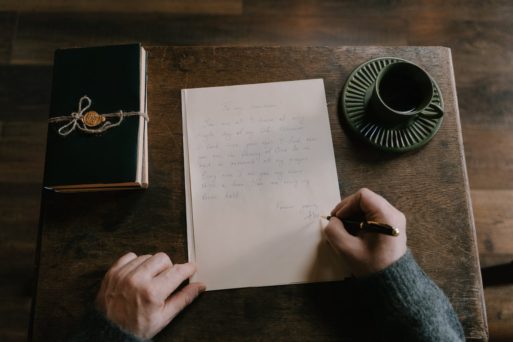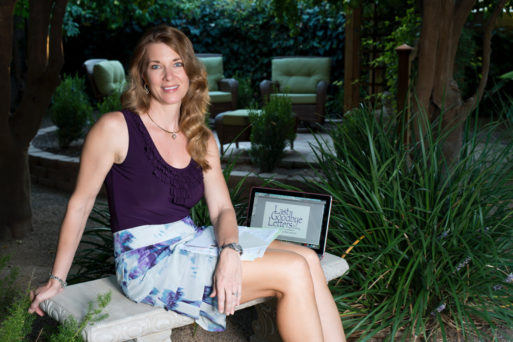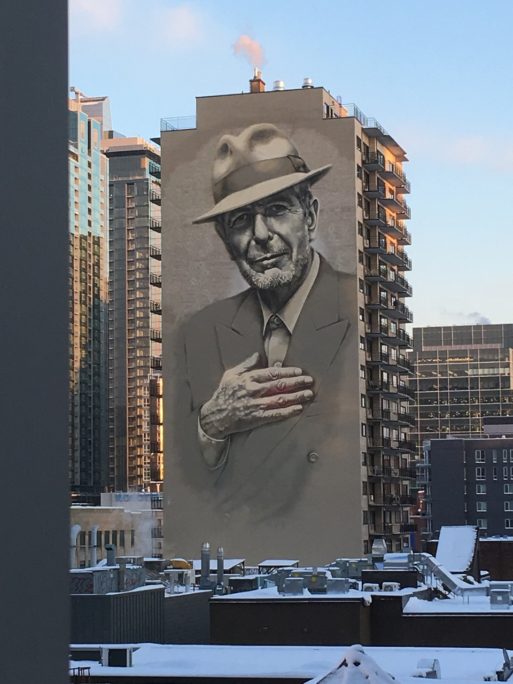
If time allows, will you consider writing a letter to your dying loved one?
That is what Susan Geer did before she visited her dying father, realizing it could be her last chance to say goodbye. The good feelings she received from completing it inspired her to create a way to share letters with and from others. She founded the website Last Goodbye Letters: Uplifting letters of life and love about 10 years ago.

Susan Geer | Submitted photo
“Originally, I thought that I would collect the letters and publish a book,” she said in an email. However, she didn’t anticipate the privacy people have about these very personal letters. Many authors choose to keep their letters private because of the emotional vulnerability that they express, Geer said, adding: “I don’t push them, I want it to be a decision from their heart.”
While most people write letters, they have also submitted pictures (mostly children), poems, and even a song. But one surprise for her has been for whom the letters are written, she said. One woman wrote a goodbye letter to herself as she entered a new phase of life. Others have come from people kicking addictions, and a letter from a cancer patient was written to her hair.
The project has led Geer to other heartfelt activities. She helped write an inscription for a tombstone and assisted someone who was terminally ill in writing Christmas gift letters to friends. But the most surprising element to her is that she thought it would be a sad, emotionally draining project.
“But, in fact, it has turned out to be just the opposite,” she said. “Letter writers have often mentioned the cathartic feeling of learning how to articulate their feelings and say goodbye in a way that gives them a needed emotional release and closure. The letters often are a celebration of life — I’ve even seen letters start out melancholy and then evolve into a love letter.”
Another successful goodbye-letter endeavor happened over in Gedling in Nottinghamshire, England. A story posted on Jan. 14, 2023, by ITVX, “Memorial postbox encouraging people to send letters to loved ones lost,” shares the inspiration of 9-year-old Matilda Handy.

She sent letters to her deceased grandparents through a special mailbox erected at Gedling Crematorium. Others have added to the “Letters to Heaven.” “It was very nice because I’m very upset and it’s just a very nice way to express my feelings and send a letter to them and to say how much I love them,” Handy said in the story.
For some, the process of exposing and sharing their feelings is too costly to risk. Therefore, saying goodbye in a letter is not for everyone. But like Handy and Geer, it brought some satisfaction and much-welcomed peace.

This Leonard Cohen mural is located at 1420 Rue Crescent, Montréal, Canada.
Saying goodbye in a letter became very public due to the late Leonard Cohen. He penned one final, sweet letter to Marianne Ihlen who died on July 29, 2016, in Oslo, Norway, at age 81. It seems they were lovers in the 1960s. According to CBC Radio, Cohen wrote a farewell letter that her close friend Jan Christian Mollestad read to her before she died.
“Well, Marianne it’s come to this time when we are really so old and our bodies are falling apart and I think I will follow you very soon. Know that I am so close behind you that if you stretch out your hand, I think you can reach mine. And you know that I’ve always loved you for your beauty and your wisdom, but I don’t need to say anything more about that because you know all about that. But now, I just want to wish you a very good journey. Goodbye old friend. Endless love, see you down the road.”
Cohen died some short months later on Nov. 7, 2016.
Geer welcomes more letters, poetry, and art to inspire and share with others.
“I feel that sharing these heartfelt farewells builds a community and helps others see they are not alone,” she said. “It also helps others find a place to start when they are staring at a blank page. However, it’s a balancing act to encourage sharing of such deeply personal thoughts while respecting their confidentiality and keeping their trust.”
Those interested in sharing can visit the Last Goodbye Letters’ submission page. The letters are posted anonymously and “scrubbed” for any personal identifying details.
“I feel so grateful that I am able to help others,” Geer said. “That’s the important thing for me — it doesn’t matter that there probably won’t be a book. I like knowing that I may have impact on lives that I will never know about. Isn’t the greatest form of giving that of giving anonymously?”
For some more inspiring love letters, read “Letters from the Holocaust” by Aurora Wells.

 Saying Goodbye In A Letter
Saying Goodbye In A Letter


 How Dare You Die Now!
How Dare You Die Now!

 “Help Me, Helen”
“Help Me, Helen”














